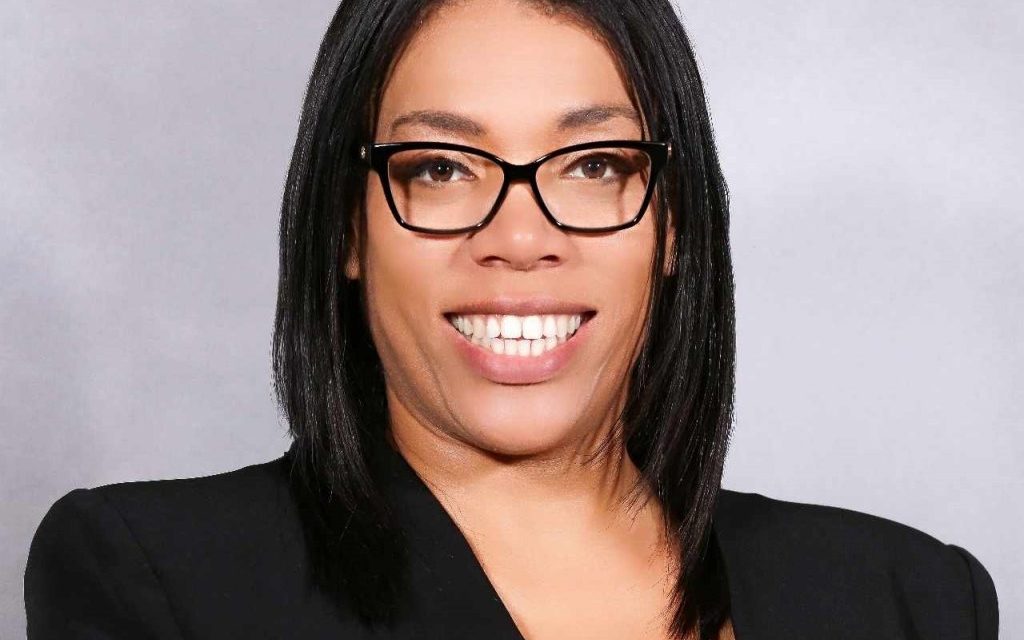By Chrissy Thorton
I have three Google Alerts set up to notify me whenever new content appears online with the keywords “Associated Black Charities,” “Chrissy Thornton,” or “structural racism.” Over the past week, all three have been unusually active.
Structural racism continues to be a critical and newsworthy issue deserving of the constant attention it is getting amidst the current political landscape. My name has surfaced pretty frequently as well, in large part thanks to the commentary I’ve been writing for AFRO American Newspapers. And Associated Black Charities has recently been in the spotlight too – not for the incredible work I think most people would agree that we are doing– but due to a targeted effort by some media outlets to frame a recent grant approval from the Baltimore City Council in a negative light.

Today, one of those alerts pointed me to what might be the most disappointing attempt at journalism I’ve seen related to the organization I am blessed to lead. Rather than focusing on the grant or its potential positive impact on Black communities, the article derailed into tired, outdated narratives dragging Associated Black Charities back to its most chaotic historical moments.
Anyone who has cared enough to observe it has witnessed ABC’s full-scale transformation over the past two years. We’ve restructured operationally, introduced new programming, strengthened existing initiatives, reconnected as advocates for Black community members and stepped into our rightful place as an anchor organization in the Baltimore region. The transformation of ABC as an organization has been intentional and extremely inspiring to many, and we’ve had open visibility into our transition and progress. Yet, some in the media prefer to cling to the past rather than acknowledge the progress and transformation happening today.
Allow me to issue my own “alert” and call this what it is: a willful perpetuation of “structural racism” (there’s that keyword!).
Since some insist on staying stuck in yesteryear, let me set the record straight about ABC, its leadership and why the media’s fixation on historical scandal does more harm than good.
Under my leadership, Associated Black Charities has hosted over 100 events and engagement opportunities—both online and in person—in 2024 alone. From community dialogues and capacity-building initiatives to workforce development programs and transformative learning experiences, our organization’s presence and impact have been both substantial and deeply felt.
Earlier this year, we conducted a tour with editorial boards at local print and television news outlets to reintroduce them to our work, highlight the relevance of our organization and explore opportunities for collaboration. We issue press releases for every major initiative and actively share the outcomes of our work through social media and email updates. Yet, instead of reporting on the tangible outcomes of our work or the urgency of our fight against structural racism, some media outlets would rather dredge up the Healthy Holly scandal.
I can’t do a deep dive into the Healthy Holly scenario because it pre-dates me, and honestly, I’ve been too busy toiling daily to raise the profile of an organization that deserves far more than the one-dimensional portrayal it gets when aligned in conversation with that debacle. What I do know is that while the organization found itself in the periphery of that investigation, it resulted in no wrongdoing by ABC. That said, I’m not sure which segment of viewers and readers are tantalized by the modern-day mentioning of Healthy Holly in relation to Associated Black Charities. Or, maybe I am.
It’s probably the same audience who takes issue with a reputable Black-led, Black-governed and Black-integrated organization receiving grant support from a city that believes in its ability to make an impact on the largest percentage of its population. It’s likely an audience that thrives on the invalidation of Black leadership in our region. It may even be the same audience that took pleasure in the recent caricatures and derogatory portrayals of Black leaders, perpetuating the age-old tradition of weaponizing dehumanizing imagery and language to strip Black people of their humanity and reinforce power dynamics.
In today’s article, I was described as a “former real estate investor and motivational speaker” in reference to my role as the leader of Associated Black Charities. While both of these descriptions are technically true—and yes, as a little girl, I dreamed of one day being recognized as a motivational speaker (Mama, I made it!) – the casual dismissal of my broader credentials feels all too familiar.
The article neglected to mention my master’s degree in organizational management or the fact that I sat successfully at the top of two other organizations before joining ABC. It omitted any reference to the boards and commissions on which I serve or the numerous leadership awards and recognitions I’ve earned throughout my career. This context is not hidden – it is readily available alongside any mention of my being a former real estate investor or motivational speaker. Yet, this more comprehensive and relevant part of my story was ignored, perpetuating a pattern of reducing my leadership to a narrow, incomplete narrative.
I reject this characterization and see it for what it is: a deliberate attempt to diminish my expertise and authority. This pervasive pattern of dismissiveness toward Black leaders, especially Black women, is no accident—it is intentional. Black women are consistently undervalued, our accomplishments overlooked and our identities reduced to the least impressive, most convenient versions of ourselves. This isn’t a new phenomenon. Historically, the media has been one of the most powerful tools of White supremacy, perpetuating narratives designed to invalidate and dehumanize Black people while upholding systemic inequities.
Next year marks ABC’s 40th anniversary, a milestone that underscores our resilience and relevance. ABC’s mission is bigger than any headline. It’s about creating pathways for economic and social progress, addressing systemic inequities and empowering Black communities. And if any media outlet can’t see that, it’s their loss.
While some writers willfully choose to turn away from amplifying our achievements and choose to cast ABC as an organization forever tethered to Health Holly, many know better. We have thriving media collaborations. These are the ones that report on the lives that have benefited from ABC’s ongoing programmatic efforts, our financial empowerment clinics, the leaders we’ve trained through our Board Pipeline Program and the countless partnerships we’ve fostered to advance equity in education, housing, workforce development, health and criminal justice. These stories don’t just deserve to be told—they demand it.
Another overlooked skill of mine (in today’s article) is my talent as a prolific writer. When the truth about ABC is ignored or misrepresented, you can count on me to step forward—consistently and unapologetically—to document it and tell our story with pride and clarity.
So, today I share, in my best “Mariah Carey singing voice,” that “It’s time…”
It’s time – as it relates to Associated Black Charities– to leave Healthy Holly in 2024. Write about it, talk about it and commiserate over it from now until the end of the year, and have a great time doing so. Then, let it go.
The work ABC is doing today is not just important—it’s transformative. We refuse to let outdated narratives or lazy journalism obscure the incredible progress and impact we’re making. It’s time to move forward.
The post Let’s leave Healthy Holly in 2024, shall we? appeared first on AFRO American Newspapers.











